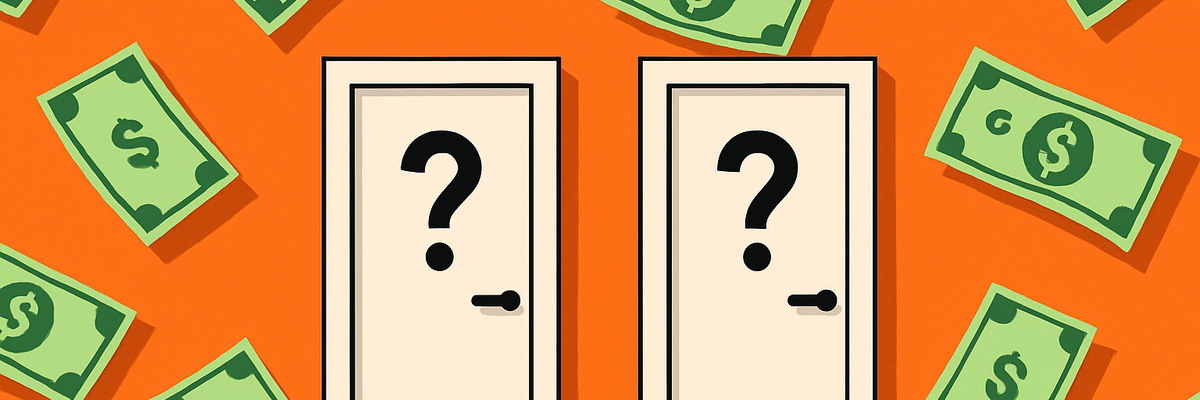6-Month vs. 5-Year CDs: What's the Best Investment in July 2025?

CDs are great in times of uncertainty. You can lock in guaranteed returns and score some top interest rates right now -- although there's chatter that we could see cuts later this year.
So… what's the play? Should you grab a 6-month CD while the yields are sizzling? Or lock in a 5-year CD to future-proof your returns?
Let's break down the case for both options (and toss in a third route that might be even smarter).
Rate comparison: 6-month vs. 5-year CDs
Here's a quick snapshot of the top CD rates right now in July 2025:
- Top 6-month CD rates: Around 4.00% APY
- Top 5-year CD rates: Roughly 3.25% APY
If you dropped $10,000 into a 6-month CD today, you'd earn about $200 by the end of the term. Stick that same $10,000 into a 5-year CD and you're looking at roughly $1,734 in total interest.
But the real twist is that nobody knows where rates will go next. If the Fed starts trimming rates in the next few months (as many predict), reinvesting in short-term CDs over and over might not work out better in the long run.
That's why a 5-year CD -- even with a slightly lower starting rate -- could end up being the more profitable choice over time.
Of course, you don't have to choose one or the other. Plenty of folks split their savings between short- and long-term CDs as a way to hedge their bets.
Before locking in anything, here's a look at the pros and cons of each.
When a 6-month CD makes sense
Short-term CDs are shining right now, especially if you like flexibility. The big perk is that your cash is only tied up for half a year, so you're free to pivot when rates change or if a better opportunity comes along. Plus, 6-month CDs are offering some of the highest yields in the CD world.
The downside to short term CDs is that compounding doesn't really have time to work its magic. And when your CD matures, there's no guarantee rates will still be this high -- which could leave you scrambling to find the next best thing.
A 6-month CD might be a smart move if you:
- Need access to your money within the next few months
- Want to take advantage of high short-term rates
- Think interest rates could go even higher before they fall
Want to lock in one of the best short-term rates available? Compare today's top 6-month CDs and see how much interest you could earn in just half a year.
When a 5-year CD makes sense
If you've got extra cash you won't need anytime soon, a 5-year CD can lock in returns with no surprises. If rates drop in the near future (which many experts expect), locking in now could feel like a power move later.
On the flip side, you're committing for the long haul. If you need to pull your money out early, you'll get hit with a penalty which can wipe out a chunk of your earnings.
A 5-year CD could be a smart choice if you:
- Have money you won't need for several years
- Value peace of mind and steady returns over chasing top rates
- Believe interest rates are headed down soon
Ready to lock in a solid rate for the long haul? Explore the best 5-year CD options and secure your returns before rates drop.
The "do-nothing" option that still pays off
Not quite ready to commit your cash for six months (or five years)? Then a high-yield savings account (HYSA) might be the best fit for now.
The top HYSAs are paying around 4.00% or more. And you can move your money in and out whenever you like.
One of my personal go-to accounts: Check out CIT Platinum Savings, which pays 4.00% APY for balances of $5,000 or more. The account has no monthly fees and is FDIC insured up to $250,000. Super easy, no hoops.
Of course, the downside to a savings account is that rates can change at any time -- sometimes without warning. But the flip side is that you're never locked in, and your money is always within reach.
That kind of flexibility can be a huge win, especially if you're still deciding your next financial move.
Our Research Expert


